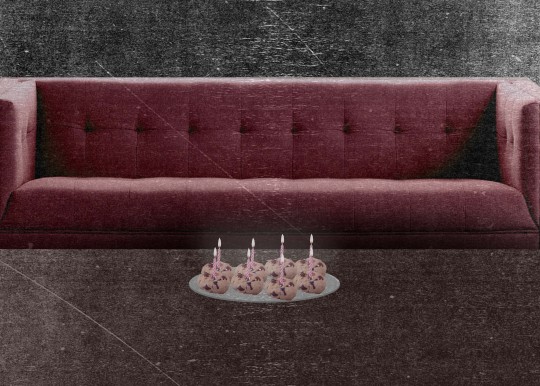Don't wanna be here? Send us removal request.
Photo

[14.01.2014]
2 notes
·
View notes
Photo

[18.01.2014]
1 note
·
View note
Photo

[17.01.2014]
4 notes
·
View notes
Photo

[16.01.2014]
1 note
·
View note
Photo

[15.01.2014]
2 notes
·
View notes
Photo

[13.01.2014]
9 notes
·
View notes
Photo

[13.12.2013]
1 note
·
View note
Photo

[09.01.2014]
4 notes
·
View notes
Photo

[05.01.2014]
2 notes
·
View notes
Photo

[12.12.2013]
Ritual (adj.)
-“relating to (religious) rites”
(Latin ritualis )
Rite (n.)
1
-“religious
observance or ceremony, custom, usage”
(Latin ritus , early 14c.)
2
-“number”
(Old English rim)
-“to count, number”, “number”
(cf. Greek arithmos)
21 notes
·
View notes
Photo

[02.12.2013]
Manifest (adj.)
1
-“clearly revealed”
(Old French)
-“clear, apparent, evident”
(from Latin manifestus)
2
-probably from manus(hand)+ festus(struck)
Manifest (v.)
1
- “to discover, disclose, betray”
(from Latin manifestare)
2
- “to display by actions”
“to reveal as in operation”
5 notes
·
View notes
Photo

[11.12.2013]
Habit (n.)
1
-“to have, to hold, to possess”
(past participle of habere)
2
-“hand, forearm”
(cf. Sanskrit gabhasti-)
-“act of taking”
(gabal)
Habit (v.)
-“to live, dwell”
(from Latin habitare)
Inhabit (v.)
1
-“hold, have”
(requentative of habere)
2
-“to dwell in”
(from Latin inhabitare)
3 notes
·
View notes
Photo

[10.12.2013] Drawings with no Figures
What happens if one takes out the figure in a drawing?
Gestures are important. Gestures are political, showing the influence of living conditions on bodies. Nevertheless, spaces do the same. Spatial arrangement impacts the body, framing (limiting but also fertilizing) possibilities of the inhabitants’ everyday living.
Inasmuch as bodily gestures are constituted out of all conditions of living, spaces do represent specific living conditions of the given time.
1 note
·
View note
Photo

[09.12.2013] Note4: Everyday Objects
The ordinary objects and spaces, are not the background in the drawings but the subject
itself. Through this, instead of serving a “more dominant” subject or a figure, but by being the subject themselves, they in fact gain an uncanny dimension to them.
1 note
·
View note
Photo

[08.12.2013] Note3: “Politically Correct”
"Politically correct" and idolized outcome is itself a fetishized matter of political structures. A liberating project needs to claim and celebrate the very practice in place of the outcome.
2 notes
·
View notes
Photo

[07.12.2013] Note2: Body
In an era that politics is influential in the way we even smoke cigarettes or our bodily gestures, it has become a means of subjectification. In a time when the body has become the locus of political conflicts, any liberating attempt would involve the body. It would start from a realization of the very fact that one’s practice of living, int its most “personal” aspects, is subjected to political mechanisms.
1 note
·
View note
Photo

[06.12.2013] Note1: Subjectivity (M.S. Guidici)
“In the postfordist city the object of production is not material goods but rather subjectivity. Subjectivity is the complex of cultural constructs ideas desires and fears that shape the way people live their lives in a given historical period. Subjectivity is collective and shared; it does not refer directly to the individuals, but it does influence the way individuals perceive themselves and their environment.”
(Giudici,Maria S. 2013. “Education, consumption, reproduction, three cautionary tales”. Is there (anti-)neoliberal architecture? Edited by Ana Jeinic and Anselm Wagner. Berlin: Jovis.)
1 note
·
View note